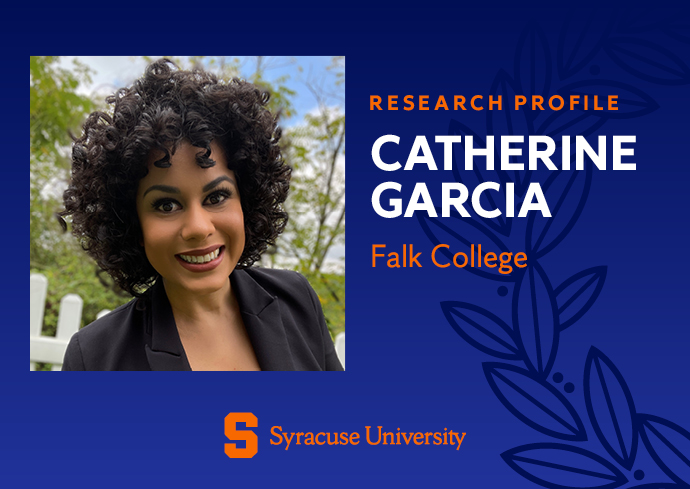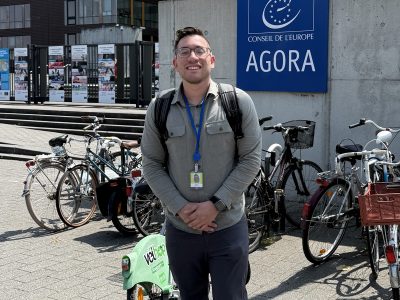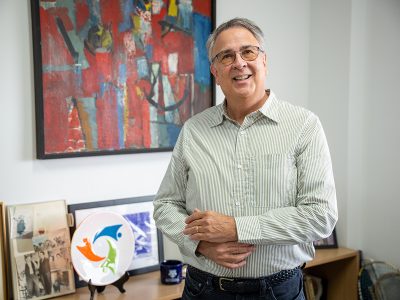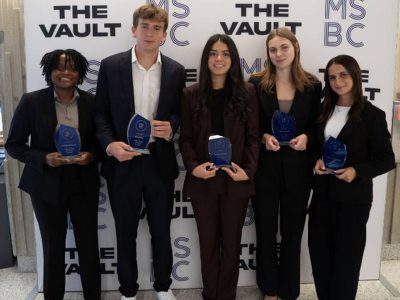Catherine García: Researching Health Disparities Among Hispanic/Latine Populations
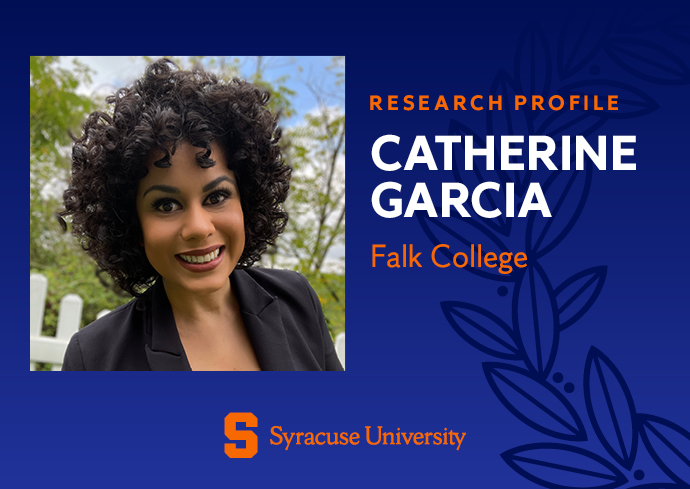
Catherine García wants to know how and why the fastest-growing segment of older adults in the United States—those of Hispanic/Latine origin—are at higher risk for chronic diseases, such as Type 2 diabetes, kidney disease and Alzheimer’s disease and related dementias. She’s particularly interested in discerning how social factors “get under the skin” in those populations to influence biological functions and overall health.
García is an assistant professor of human development and family science in the Falk College of Sport and Human Dynamics. She’s also a faculty affiliate at the University’s Aging Studies Institute, Center for Aging and Policy Studies and Lerner Center for Public Health Promotion and Population Health. García came to Syracuse in 2021 from the University of Nebraska-Lincoln, where she was an assistant professor of sociology and a core faculty member of the Minority Health Disparities Initiative. Her award-winning research has been supported by the National Institute on Aging and the National Institutes of Health.
